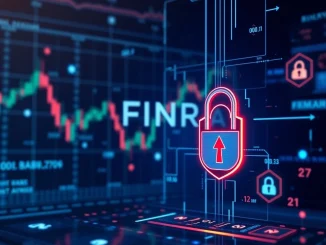
Big news from Asia! The landscape for digital assets in Hong Kong is undergoing a significant transformation. The city has taken a major step towards establishing a clear regulatory framework for stablecoins, a move keenly watched by the global crypto community. This development is set to reshape how stablecoins operate within the jurisdiction and integrate with traditional finance.
What Does the Hong Kong Stablecoin Bill Mean?
The Legislative Council in Hong Kong has officially passed the stablecoin bill Hong Kong. This legislation is not just a formality; it lays the groundwork for a structured and regulated environment for stablecoin issuance. According to legislator Johnny Ng, who shared the update on X, the bill successfully passed its third reading.
This passage is crucial because it enables the creation of a dedicated licensing regime. This means that entities wishing to issue stablecoins in Hong Kong will need to apply for and obtain a specific license.
Securing an HK Stablecoin License
With the bill now law, the focus shifts to implementation. The new regime will empower the Hong Kong Monetary Authority (HKMA), the city’s central banking institution, to oversee stablecoin issuers. Major players in the digital asset space are expected to seek approval under this new system.
Applications for the HK stablecoin license are anticipated to open by the end of 2024. This timeline provides potential issuers with a clear target for preparing their operations and compliance frameworks to meet the HKMA’s requirements.
Why Stablecoin Regulation Hong Kong Matters
The introduction of comprehensive stablecoin regulation Hong Kong is a strategic move by the city to position itself as a leading digital asset hub. Regulation is often seen as a necessary step to foster trust and stability within the nascent crypto market.
Legislator Johnny Ng highlighted the importance of this move, expressing hope for collaboration to develop real-world use cases for stablecoins and to strengthen market stability. A clear regulatory framework can attract more institutional participation and provide greater protection for users.
The Future for Hong Kong Digital Assets
This regulatory clarity for stablecoins is a significant piece of the puzzle for the broader Hong Kong digital assets strategy. By regulating stablecoins, which act as a bridge between traditional finance and the crypto world, Hong Kong aims to build a more robust and integrated ecosystem.
The licensing regime is expected to bring more accountability and oversight, potentially reducing risks associated with unregulated stablecoins and fostering innovation within a controlled environment. This move signals Hong Kong’s commitment to embracing digital finance while managing potential systemic risks.
Summary: A Step Towards Regulated Growth
The passage of the Hong Kong stablecoin bill marks a pivotal moment for the city’s digital asset ambitions. By establishing a clear licensing framework under the HKMA, Hong Kong is setting the stage for regulated stablecoin issuance, with applications expected later this year. This move aims to enhance market stability, encourage innovation, and solidify Hong Kong’s position as a key player in the global digital asset landscape. It’s a clear signal that Hong Kong is open for digital asset business, provided it operates within established rules.



